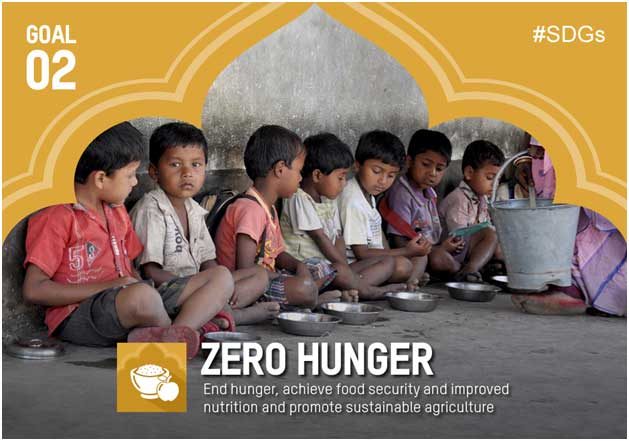Can UN Development Be Reformed? Not at This Rate

GENEVA, Jan 09 (IPS) - Like his predecessors, United Nations Secretary-General António Guterres has been pushing a reform program to help the organization adjust to the demands of contemporary global governance.
Over nearly 75 years, the UN has innovated and adapted. At first, humanitarian assistance was not envisaged to go beyond the needs of people displaced by global conflict. Yet that program now disburses nearly $30 billion a year through its largest field agencies, growth that has led to some radical changes in the organization.
The UN's peacekeeping practices also had to be invented and have since adapted to intrastate conflict and global terrorism. Human rights was initially a verbal aspiration only.
But with the Universal Declaration in 1948, they have been enshrined in many covenants and treaties that have been overseen since 1993 by a high commissioner and a well-staffed office in Geneva.
That leaves the fourth pillar of development, where services, training and research are administered by more than 30 separately managed organizations and a similar number of departments, institutes and commissions.
The development system cries out for reform, but progress is continually frustrated by inertia. This sprawling organizational domain originally comprised the first specialized agencies, some predating the creation of the UN itself, and "brought into relation" with the organization in 1945.
Their parallel, independent existence has defied attempts to bring coherence into the UN's development work, particularly as the "development system" grew.
More specialized agencies joined the family, and many UN funds and programs were established to respond to newly perceived development challenges, dispersing the UN's development efforts further.
The UN Development Program (UNDP) was intended to act as principal funder and coordinator of the system. But each agency and organization of the system began to supplement its financial needs by going directly to the UN's main donor governments, as UNDP became its own separately funded implementing agency. As a funding rival, UNDP could no longer be considered a useful coordinator.
What has emerged is an extensive web of patronage underpinning UN development. Northern countries patronize the UN selectively through their preferred organizations and funding patterns, to align with their own agendas.
Today, four-fifths of funding through the UN development system is earmarked by donors, while core funding has shrunk concomitantly.

For their part, the governments of the Global South — and individual ministries in them — have also developed preferential relationships with individual UN organizations. So, whether patrons and patronized, member states see advantages in a disjointed UN system that keeps expanding in response to their demands and lacks a central blueprint.
Consequently, member states are largely satisfied with the status quo and reluctant to support more consolidation and coherence and less wasteful duplication and overlap.
More is better than less, and change is not primarily motivated by cost-effectiveness, which would be required for any organizational reform.
The pervasive patronage system goes a long way in explaining why conservatism prevails in intergovernmental discussions on reform. So why pursue reform if many of the member states are opposed?
The answer is that even if cost-effectiveness does not drive change, the fact remains that the UN could do more with less in the development domain, and it is for the UN organizations themselves to strive to be more valuable for "we, the peoples," particularly in helping countries to achieve their own 2030 Agenda, the Sustainable Development Goals (SDGs).
A high-level panel in 2006 proclaimed the shortcomings of the UN development system as "Ineffective governance . . . policy incoherence, duplication and operational ineffectiveness . . . competition for funding, mission creep and outdated business practices."
Ten years later, many of the same sentiments were echoed by an independent team of advisers. The latest reforms proposed by Guterres fully acknowledge the problems, but can they be resolved?
Take funding. Unwinding the patronage system will mean first shrinking the preponderance of conditional funding by donor governments. A new "funding compact" has been drawn up that aims to increase core funding from 20 to 30 percent and encourage more pooling of donor resources. It's a start, although there is not much optimism that even these modest goals will be achieved.
Next, consolidation. The system is too large and unwieldy. The many governing bodies need to acknowledge their common interests and combine their oversight functions, reducing the tendency for the same governments to speak with different voices on different boards.
Again, the prospects for more united governance are not promising. Meanwhile, atomization at the field level has increased, with evermore numbers of representative offices, now over 1,400.
The answer has been to "deliver as one" with closer collaboration within country teams. In the latest reform, the transfer of responsibility for field coordination has been removed from UNDP and given to UN resident coordinators, reporting solely to the deputy secretary-general, Amina Mohammed.
These coordinators will also be given more staff and resources. These are positive steps. However, fewer than half of the developing countries have signed up to the One UN concept, favoring the patronage system.
A larger systemic challenge persists. Each of the main functions of peace operations, human rights, humanitarian relief and development in the UN system are still managed by separate clusters of entities, with separate funding sources and separate lines of vertical communication.
Except for a few crisis-prone countries, these functions are managed in isolation from one another.
So while development is "sustainable," it does not incorporate considerations of rights inherent in the UN's own concept of human development. There are humanitarian coordinators in addition to resident coordinators for development. Peace operations are still mainly concerned with mobilizing armed personnel.
Belatedly, there are new attempts at management reform, which is welcome. But here, again, there are flaws, starting with senior appointments. While the current secretary-general was appointed through a more meritocratic process, there has been no departure from the double jeopardy that allows the veto-wielding powers — Britain, China, France, Russia and the United States — to choose both their own top posts and the incumbents in the UN secretariat.
Management comes from the top, and this second form of UN patronage hurts chances for a more effective UN. Considerations of geography and gender cannot take precedence over the "highest standards of efficiency, competence and integrity" enshrined in the language of the Charter.
"Reform, that you may preserve," said Thomas Macaulay, the British politician and essayist, nearly 200 years ago. The continued life of the UN, particularly in development, depends on its ability to change.
*The post Can UN Development Be Reformed? Not at This Rate appeared first on PassBlue.
© Inter Press Service (2020) — All Rights ReservedOriginal source: Inter Press Service
 Global Issues
Global Issues